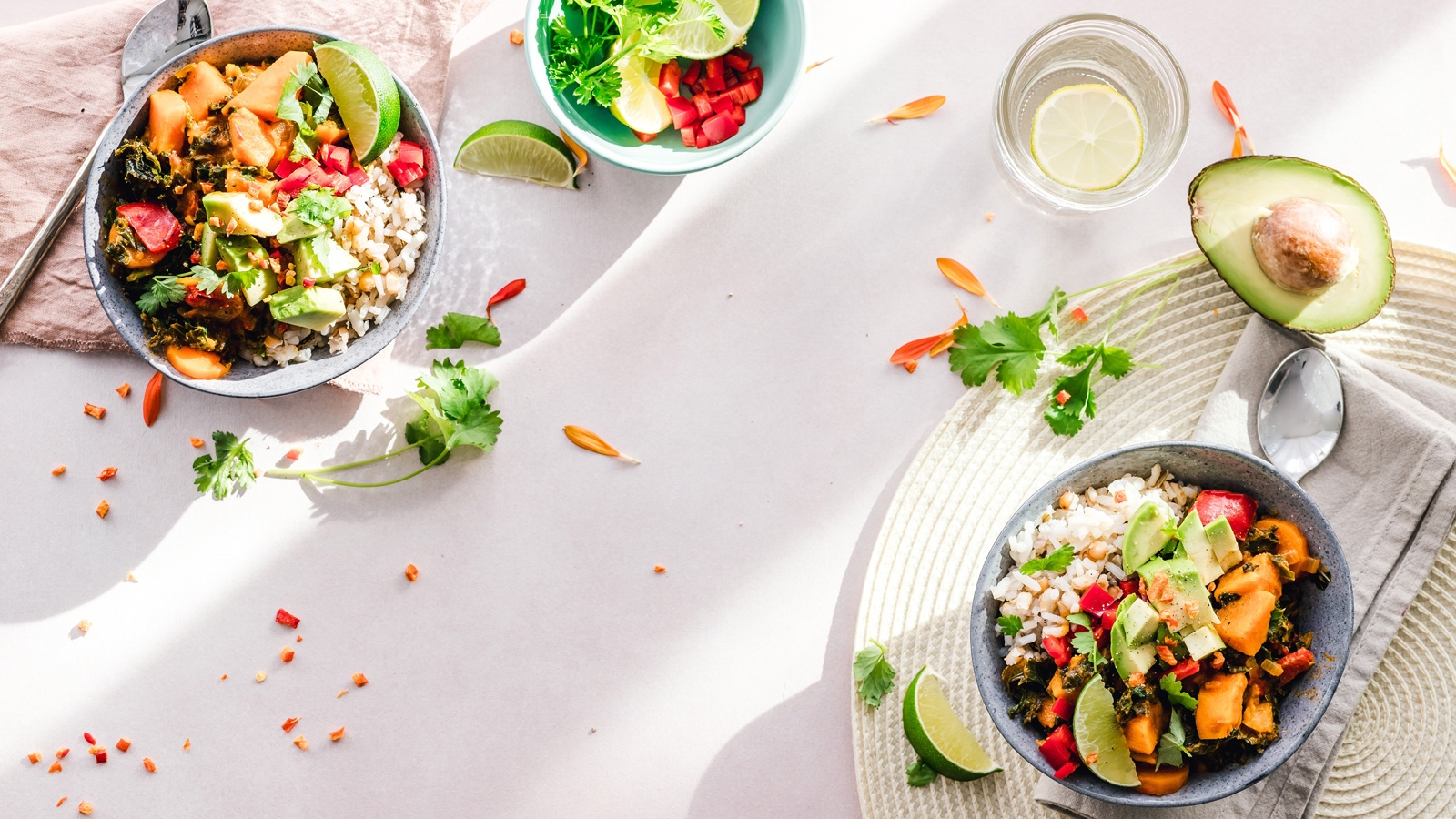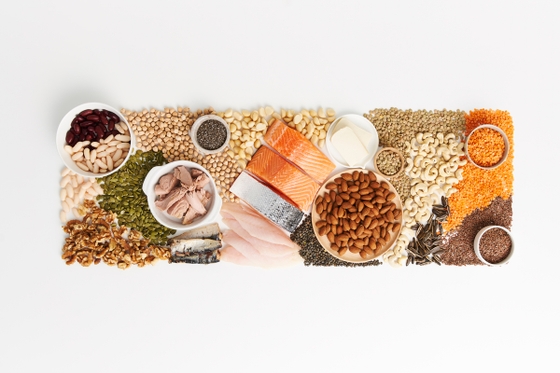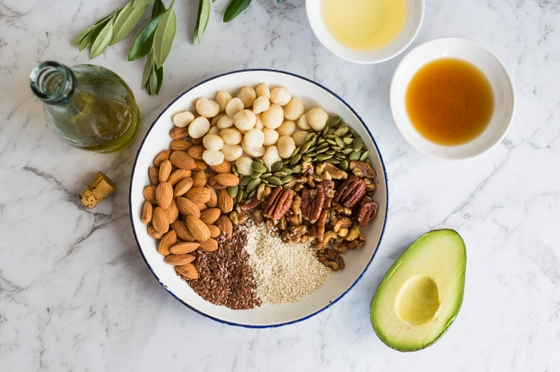
9 food and heart health myths, busted
Let’s dive into nine common food and health myths and the facts behind them.
Key takeaways
- There are lots of myths out there around food and heart health
- It’s important to be able to separate fact from myth to eat well for your heart
- Heart healthy eating is the holistic combination of food you eat over time
- No single nutrient or food will cause or prevent heart disease on its own.
Should you cook with butter or olive oil? Is that drink of red wine protecting your heart? Pink Himalayan salt is healthy, right?
There are plenty of food myths disguised as facts on the internet, discussed at dinner parties, and in magazines. It can be both confusing and contradictory. Let’s dive into nine common food and health myths and the facts behind them.
Myth 1: Butter is healthy for your heart
Butter is used in cooking across the world. It’s very versatile and is used for sautéing, frying, greasing, baking and in sauces.
The facts about butter
Butter is not a health food and is something that should be limited in a heart healthy diet. Evidence shows a relatively small or neutral risk between butter and mortality and heart disease.
The problem is that butter raises both good and bad cholesterol levels, with the rise in the bad outweighing the benefit of the rise in good cholesterol. If you already have high cholesterol, butter can raise bad cholesterol levels even further.
Is butter part of a heart healthy diet?
Butter should only be eaten sometimes and in small amounts. Swap butter for foods that reduce risk of heart disease – like avocado, olive oil, nut butters, and spreads made from canola or olive oil.
Myth 2: Coconut oil is a healthy superfood
Coconut oil has been the centre of a raging debate for the last few years. Named by some as a superfood, does it deserve this title?
The facts about coconut oil
Coconut oil also contains 92% saturated fat. Even though this type of saturated fat is slightly different to that found in animal products, it doesn’t make it a healthy option.
Coconut oil raises both good and bad cholesterol, with the rise in bad cholesterol outweighing the rise in good cholesterol.
Is coconut oil part of a heart healthy diet?
Like butter, coconut oil is not a health food. Coconut oil is something that should only be consumed occasionally and in small amounts. Go for healthier cooking oils instead, such as olive oil.
Myth 3: Sugar is toxic for heart health
Sugar in food or drinks can be naturally occurring or added during processing. In recent years, sugar has been under attack, with some people aiming to completely eliminate it from their diets.
The facts about sugar
There's no scientific consensus that sugar as a nutrient causes heart disease. However, high intakes of added sugars and refined carbohydrates are linked to an increased risk of heart disease.
Too much sugar can increase the amount of energy (kilojoules) people consume and may lead to increased weight gain, which is a risk factor for heart disease.
Is sugar part of a heart healthy diet?
Your whole diet matters, not one single nutrient like sugar. The bulk of the added sugars in Australian diets comes from junk foods – particularly sugary drinks. Limit or avoid these foods and drinks as part of your overall heart healthy diet.
Myth 4: Omega-6 fats can cause inflammation
Food sources of omega-6 include nuts, seeds and their oils (including sunflower, safflower, sesame, canola and to a lesser extent, olive oils). There are some claims that omega-6 fats promote inflammation and increase the risk of heart disease.
The facts about omega-6 fats
Omega-6 is an essential fatty acid, as the human body cannot make it naturally. Research has not found evidence about an association between inflammation and omega-6. You can include these omega-6 rich foods as part of your heart healthy eating pattern.
Is omega-6 part of a heart healthy diet?
Overall, the scientific evidence strongly supports the benefits of polyunsaturated fats (PUFAs), including omega-6 polyunsaturated fats, in a heart healthy diet.
Myth 5: Saturated fat is healthy now
Saturated fat comes from many different sources, including meat, chicken, dairy products and palm and coconut oil. It’s also in discretionary or processed foods like biscuits, pastries and take-away foods.
The facts about saturated fats
Saturated fats are unhealthier than unsaturated fats, but preferable to trans-fats. The evidence supports that reducing saturated fats in your diet and replacing them with unsaturated fats reduces the risk of heart disease.
Swapping out saturated fat with wholegrains also reduces your risk of heart disease, but not to the same extent as with unsaturated fat. Substituting saturated fat with refined carbohydrate doesn’t reduce the risk of heart disease.
Are saturated fats part of a heart healthy diet?
Junk food and drinks are the leading contributors to saturated fat intake. Cut down on these foods by replacing them with heart healthy foods.
Get more healthy fats in your diet from sources such as nuts, seeds, avocados, olives and their oils, and oily fish.
Myth 6: Pink Himalayan salt is healthier
Salt now comes in a range of varieties. As more options become available, the myths about salt and health have started to grow. So, is pink Himalayan salt actually healthier?
The facts about pink Himalayan salt
It’s true that some gourmet salts do contain trace minerals not found in table salt, but only in tiny amounts. These minerals can be found in larger quantities in healthy foods like vegetables.
Sodium and chloride are in types of salt (table salt, pink salt, rock salt, black salt, etc.) – and it’s the sodium that can be damaging to health.
Too much of any type of salt can lead to high blood pressure, which is a leading risk factor for heart disease.
Salt in a heart healthy diet
The maximum daily amount of salt you should eat is about a teaspoon (5 grams). One way to cut down on salt is to use herbs and spices in cooking or to season your meals.
Myth 7: You shouldn’t cook with olive oil
People are often concerned about cooking with olive oil due to the smoke point.
The facts about olive oil
Olive oil is a healthy and versatile oil that you can use with a variety of cooking methods. Olive oil is a great option for medium-temperature frying (i.e. stir frying or warming food in a pan). Oils that are suitable for high-temperature frying (e.g. deep frying) include extra virgin olive oil, high oleic canola oil and high oleic peanut oil, as they are more stable at high temperatures.
Myth 8: Dark chocolate and red wine are good for my heart
You might hear this myth over a glass of red at a dinner party with a vague reference to antioxidants and polyphenols. Unfortunately, it’s a classic case of it being a bit too good to be true.
The facts about dark chocolate and red wine
Antioxidants
Let’s first look at antioxidants. These are naturally occurring agents or compounds in foods that may protect your cells against free radicals.
There’s a lack of consistent evidence to confirm that the antioxidants in red wine can either prevent heart disease or be beneficial after a heart attack. The quantity of alcohol drunk is more important than the type of alcohol.
While red wine contains a variety of polyphenols (the amount varies greatly between each bottle), red wine is not a good source of antioxidants for preventing heart disease.
Polyphenols
Next, we turn to polyphenols – a group of chemical substances found in certain plant-based foods. They are the most abundant antioxidants in our diet.
The good news is that consuming high polyphenol cocoa/chocolate can reduce risk factors for heart disease. However, most manufactured chocolate is low in these substances.
Dark chocolate doesn’t necessarily mean the presence of high amounts of polyphenols. Manufacturers also aren’t obligated to put these on their nutrition information panels, so reading labels doesn’t help.
Raw cocoa powder does have high levels of polyphenols, and we recommend using raw cocoa powder in drinks and cooking.
Myth 9: Reduced-fat milk is healthier
You have a lot of choices when it comes to milk. But is reduced-fat actually healthier for your heart?
The facts about reduced-fat milk
Milk can be included in a heart healthy diet, but there is mixed evidence about whether full-fat or reduced-fat products are the healthiest option. Some studies show one is better than the other, while others say there is no difference.
There isn’t enough conclusive evidence to recommend one over the other. It’s up to you whether you choose to have reduced-fat or full-fat milk – as long as it’s unflavoured.
The fat in dairy raises cholesterol, which for most healthy people is not an issue. However, if you have existing heart disease or high LDL cholesterol, then it’s best to choose reduced-fat milk products.
Beyond whether you choose reduced-fat or full-fat milk, a heart healthy diet is about the combinations of foods you eat over days and weeks.
Know the facts
Myths start for all sorts of reasons, and there may even be elements of truth in some. To separate fact from fiction, trust authoritative sources, like government or peer-reviewed scientific publications, for credible information. And remember that leading a healthier life is all about balance.
Get inspiration for your next meal with our heart healthy recipes.
You might also be interested in...

Protein and heart health
Healthy proteins can part of a heart-healthy diet. However, each can impact your risk of heart disease differently. Find out more the best food protein sources.

Fruit, vegetables and heart health
How to boost your fruit and vegetable intake to help protect your heart.

Fats, oils and heart health
While eating fatty food may sound like a bad thing, some fats can play an essential role in keeping your heart healthy.
Last updated21 February 2024